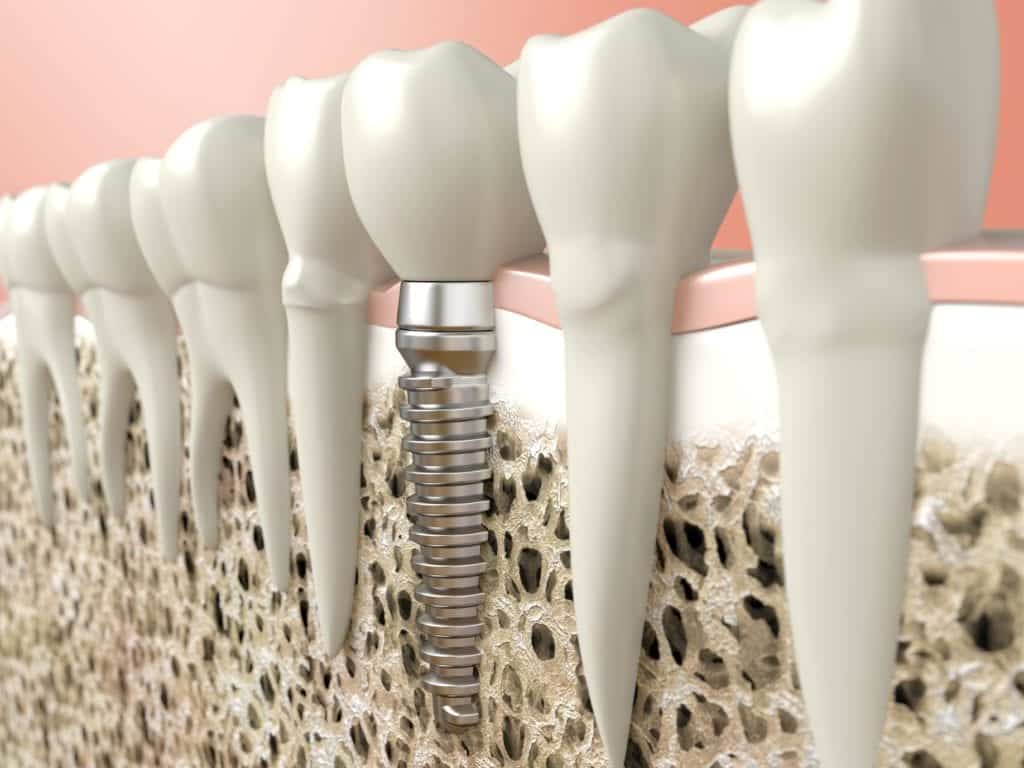According to the American College of Prosthodontics, about 120 million Americans are currently missing at least one tooth. Missing one or more teeth is known as partial edentulism, while missing all your teeth is known simply as edentulism. Currently about 36 million Americans are edentulous.
Teeth normally fall out as a result of severe tooth decay, gum disease, or trauma. In some cases, teeth may also be extracted by a general dentist to relieve painful symptoms, localize an infection, or to prevent damage to the surrounding teeth. Once a tooth has fallen out or been removed, an empty tooth socket is left behind.
At this point, dental patients often find themselves wondering what to do next. Some people may be tempted to simply allow the site to heal and take no further action. However, ask any general dentist and they will tell you that replacing a missing tooth or teeth is highly important to your oral health. In fact, they will likely tell you to replace missing teeth for these five reasons:


To Prevent Bone Loss
When a tooth is lost, the jawbone is no longer being stimulated by the force of chewing. Ultimately, this results in the body absorbing the bone tissue from the jawbone to be used elsewhere in the body. This is known as resorption and it begins about six months after a tooth is lost. Over time, bone loss can cause the shape of your face to completely change. To prevent this from happening, replacing your missing teeth with dental implants are recommended. Out of all the restoration methods for replacing missing teeth, only dental implants can prevent bone loss.

To Maintain an Even Bite
In order to maintain an even bite, the entire upper and lower arch must be full of teeth. If teeth are missing, then there are gaps in between teeth. This will eventually lead to the teeth shifting to fill in the gap. Once the teeth have shifted, the way the upper arch meets the lower arch is significantly affected. Having an uneven bite causes a range of problems that affect the teeth and jaw. Replacing missing teeth eliminates the gap and prevents the teeth from shifting so that the bite remains as it was before the tooth was lost.

To Prevent Overgrowth of Opposing Teeth
Just as the gaps left by missing teeth can cause the teeth next to them to shift and fill the gap, this can also happen with opposing teeth. For example, when a tooth on the bottom arch is lost, the tooth that is directly above it may grow longer to fill the opposing gap. This usually occurs because the absence of a tooth means there is no opposing force to maintain the growth of the opposing tooth. Restoring the missing tooth allows the opposing tooth to be exposed to the force of the dental prosthesis like it would have with the natural tooth.

To Retain Function
Besides smiling, the main functions of your teeth are to bite and grind food, as well as to help you speak. However, to carry out these functions fully, all the teeth need to be present. When teeth are missing, it negatively affects your ability to bite and chew certain foods that are hard or chewy. Not only that, but the gaps left by missing teeth change the way air flows during speech and can even alter the way you speak. If your teeth begin to move, this can also change the way you speak and can even lead to permanent speech impairment. Replacing missing teeth ensures that you will still be able to carry out the functions your teeth are essential for.


To Improve Visual Aesthetics
Last, but not always least, you should replace your missing teeth to improve the visual aesthetics of your smile. Smiles with a missing tooth or multiple missing teeth do not have the same visual appeal as those with a full set of teeth. Having a nice smile has been proven to have many social, professional, and emotional benefits, therefore you should also replace missing teeth to improve the look of your smile.
Overall, replacing missing teeth is highly important to maintain the appearance and function of your smile. Replacing missing teeth can prevent serious dental issues in the future, while preserving oral functioning and improving your smile. Replacing missing teeth with dental implants can even prevent bone loss. With all these reasons, replacing missing teeth is almost a no brainer.

Dr. Dennis Laurich has been practicing dentistry for over 40 years. He received his DDS degree from the University of Michigan Dental School and regularly attends oral health care conventions to continue his dental education. This allows him to treat patients with the leading dental technology and methodologies. Additionally, he is a member of the American Dental Association, Michigan Dental Association, and the Detroit District Dental Society.
Dr. Dale Flanagin II is a distinguished professional in the field of dentistry, holding a Bachelor’s degree in Molecular Biology and Biotechnology as well as a Doctor of Dental Surgery degree. He is committed to improving the lives of others through his work, driven by a lifelong passion for helping people.





